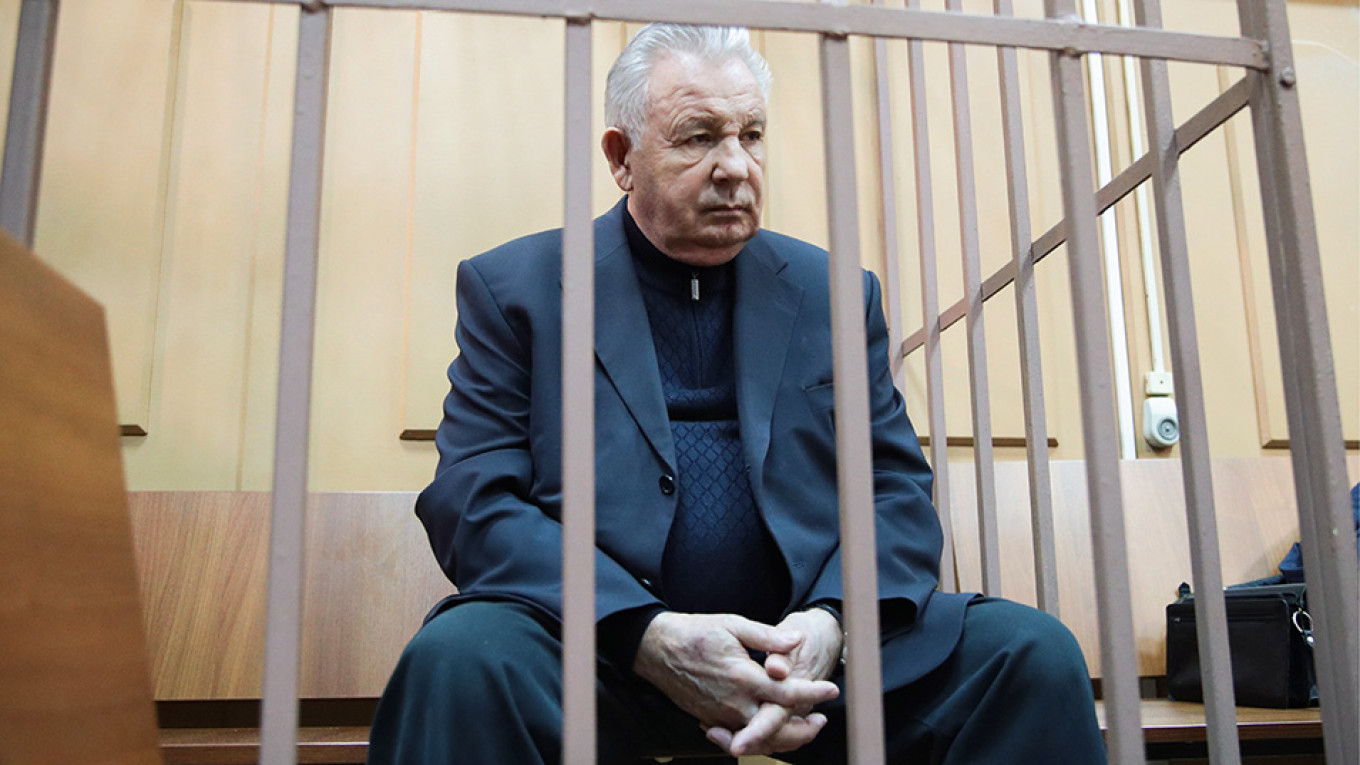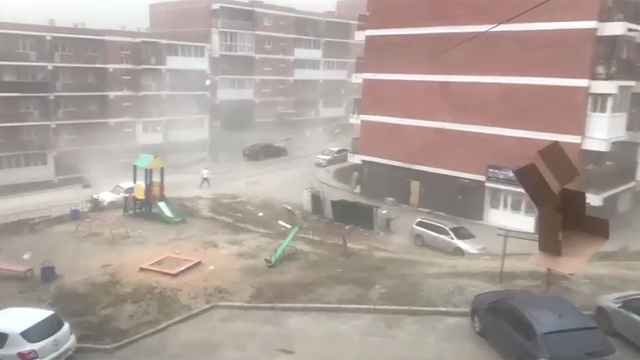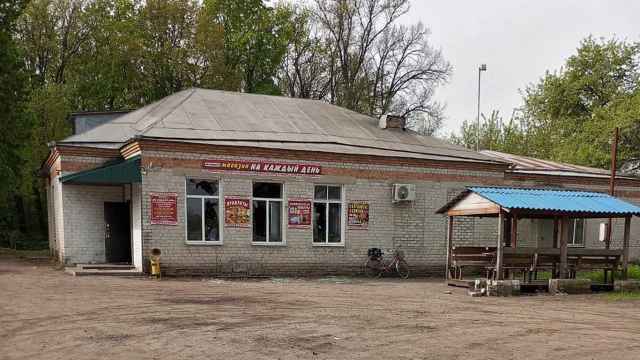The well-publicized arrest of ex-minister Mikhail Abyzov was followed just two days later by a scandalous new arrest on March 28 — this time of the former Khabarovsk governor Viktor Ishayev.
Unlike the situation with Abyzov, everything seems more transparent in Ishayev’s case. Being an important and long-standing politician, who was in charge of Khabarovsk for 18 years (from 1991 to 2009), Ishayev had a long-running conflict with his successor local governor Vyacheslav Shport.
In the last — extremely difficult for the Kremlin — gubernatorial elections, Ishayev backed a candidate outside of the ruling United Russia party, namely the far-right Liberal Democratic Party of Russia (LDPR) party candidate Sergei Furgal, who ultimately not only won but started to appoint people from Ishayev’s team to key posts in the regional administration.
The Kremlin, it appears, had other plans: searches are now being carried out in the offices of the regional administration, fulfilled by Ishayev’s people.
Furgal remained an undesirable candidate for the Kremlin which prompted the siloviki to investigate all major activities linked to Furgal’s supporters, including Ishayev.
Two major episodes linked to Ishayev were found — fraudulent activity in the Khabarovsk forestry sector and real estate machinations concerning Rosneft real estate in Khabarovsk.
Rosneft opted to head the investigation into Ishayev’s work at the company, which he oversaw from 2013 to 2018 as an advisor to Sechin. In other words, Rosneft had to find a way to protect itself from probable political conflict between the Kremlin and Ishayev/Furgal in a way which would not blow the company’s reputation.
While one sector within the Kremlin hopes to put Ishayev behind bars in order to pressure Furgal, Sechin seems to want to take it easy on him, thereby minimizing his own guilt as Ishayev’s schemes happened under his watch.
Maybe that’s why Ishayev was put under home detention avoiding pre-detention prison.
Abyzov, having had a lot of guarantors in the past could not avoid ending up in a cell, as Dmitry Medvedev these days has very limited political influence.
It might appear that the recent stories involving arrests have little in common, they all share one feature: Vladimir Putin's unofficial “power vertical” is losing its ability to control the state machinery.
Furgal’s case is a rift typical of regional elites, the kind of squabble the Kremlin was previously relatively effective in stopping thanks to the strength of the ruling party United Russia. Local elite groups would frequently diversify their political investments by supporting the systemic opposition, though this principally concerned the legislative branch.
Anybody backing another candidate against a favorite would normally have the sole aim of strengthening their position for subsequent bargaining, but with United Russia ratings falling this now presents the opportunity for outright victory — made clear by a number of recent gubernatorial campaigns
But this is not limited to one part of the country: it is a new trend in many Russian regions, as a more recent episode in the Irkutsk region proves. Housewife Anna Shchekina was elected mayor of the city of Ust-Ilimsk after running on an LDPR ticket with the support of ex-mayor Anatoly Dubas, a deputy in the regional assembly.
This is a fascinating trend: while previously high-profile regional actors fought to first talk to United Russia, only then turning to the opposition, the situation has now been completely reversed: an investment in the Communist Party or LDPR can bring outright victory over the authorities’ favored candidate, which drastically increases the prospects of opponents of United Russia and creates far better conditions for the defeat of Kremlin candidates at all levels of future regional elections.
An investment in a candidate from the Communist Party or LDPR can bring victory over the authorities’ favored candidate.
The problem is aggravated by the approach of those currently responsible for shaping internal politics: not only is work on incorporating the systemic opposition into the “vertical” not being done, but this is not recognized as harmful.
Instead of working to strengthen the position of the ruling party, the Kremlin is focusing on engineering victories for specific candidates, which is eroding the regime’s institutional foundation.
This is leading to the appearance of a growing army of figures who are unhappy about the new political trends. These include extremely influential players such as Igor Sechin or Russian Defense Minister Sergei Shoigu (who, for example, supported Viktor Zimin’s ill-fated bid for re-election as governor in Khakassia last fall).
In other words, Shport’s defeat in Khabarovsk is becoming not only a failure for the Kremlin, but a headache for influential groups with an interest in the region, who are now being forced to protect their interests with whatever means they have at their disposal.
It is not Sechin’s aim to sow discord between new and former governors of the Khabarovsk Territory, but if a problem appears, it’s simpler to solve it using tried and tested methods with the help of the siloviki — officials with ties to law enforcement.
This is the reason for the increasingly chaotic functioning of administrative and power resources, in which each player takes what they need from the state in order to solve their corporate or political problems.
Abyzov’s arrest is irrefutable confirmation of this. The former minister, who was being hunted down by creditors, was arrested over a dubious corporate deal that the FSB is now trying, post factum, to turn into a serious political investigation. Abyzov is now being painted as the organizer of a criminal group that is threatening the “economic development and energy security of several regions.”
The siloviki are losing their political exclusivity and beginning to serve the corporate interests of various groups, which is also a vivid symptom of the destruction of the “vertical.” Putin first developed the political instruments through which he established control over the state machine in the 2000s, when the regime was flourishing.
The Federation Council and the State Duma, regional governors and legislative bodies, as well as the mayors of major cities, were built into a single, unofficial vertical. The siloviki constructed the vertical without higher political permission and didn’t touch politicians and officials.
Little now remains of this ideal system. Nobody can get through to Putin, and everyone is now on their own: the systemic opposition can be used in order to remove an inept governor, and the FSB to jail a debtor or take revenge for disloyalty.
The number of imprisonments will snowball in the very near future, touching even the highest-ranking officials. A struggle for survival is beginning to emerge.
And crucially, there is no longer a way back to the stability of the 2000s, nor the vertical, leaving Putin with only local manual control — when he is not occupied with geopolitics.
The logic of political processes in Russia has changed, with the motto “that which is not permitted is forbidden” replaced by a new one: “that which is not forbidden is permitted.”
A Message from The Moscow Times:
Dear readers,
We are facing unprecedented challenges. Russia's Prosecutor General's Office has designated The Moscow Times as an "undesirable" organization, criminalizing our work and putting our staff at risk of prosecution. This follows our earlier unjust labeling as a "foreign agent."
These actions are direct attempts to silence independent journalism in Russia. The authorities claim our work "discredits the decisions of the Russian leadership." We see things differently: we strive to provide accurate, unbiased reporting on Russia.
We, the journalists of The Moscow Times, refuse to be silenced. But to continue our work, we need your help.
Your support, no matter how small, makes a world of difference. If you can, please support us monthly starting from just $2. It's quick to set up, and every contribution makes a significant impact.
By supporting The Moscow Times, you're defending open, independent journalism in the face of repression. Thank you for standing with us.
Remind me later.








